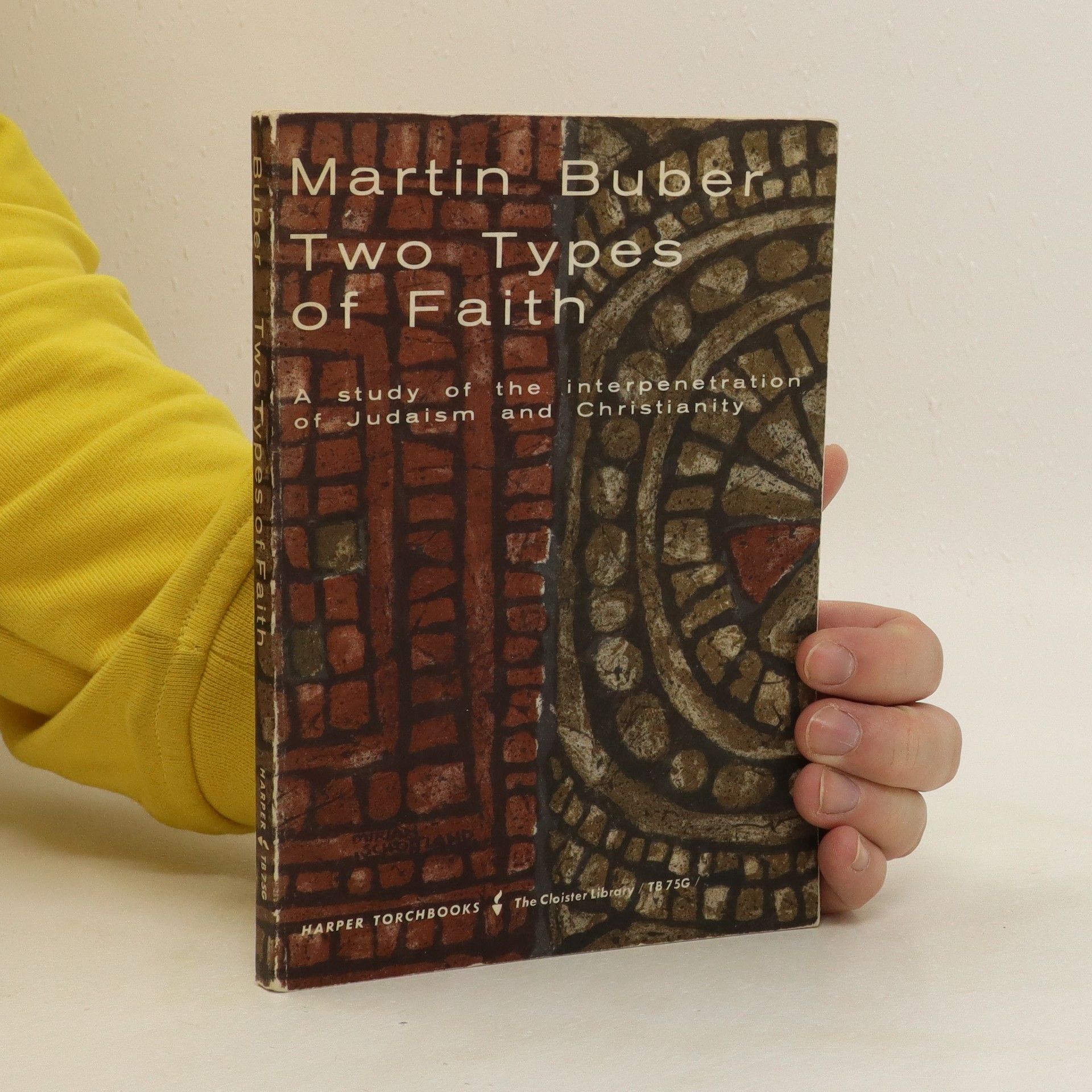Scripture and Translation is the first English translation of an essential work on translation theory and the modern literary study of the Bible. First published in Germany in 1936 as Die Schrift und ihre Verdeutschung, the book grew out of Buber and Rosenzweig's work on an innovative and still controversial German translation of the Hebrew Bible. Rather than provide an idiomatic rendering, the Buber-Rosenzweig translation recasts the German language on the model of biblical Hebrew by attempting to reproduce the spoken quality, structure, and ordering of poetic devices found in the original texts.These essays articulate the rationale for the translation, both in theoretical terms and through close readings of specific texts. This edition also includes the first publication in any language of Martin Buber's essay "The How and Why of Our Biblical Translation."
Martin Buber Libros
Martin Buber fue un filósofo judío nacido en Austria, conocido por su filosofía del diálogo, un existencialismo religioso centrado en la distinción entre la relación Yo-Tú y la relación Yo-Ello. Su obra profundiza en la esencia de la conexión humana y su significado espiritual. Buber enfatizó el encuentro auténtico y la inmediatez en la comunicación como clave para la existencia humana. Sus influyentes ensayos y traducciones de textos hebreos han dado forma al pensamiento religioso y filosófico moderno.







Hasidism and Modern Man
- 288 páginas
- 11 horas de lectura
Hasidism, a controversial, mystical-religious movement of Eastern European origin, has posed a serious challenge to mainstream Judaism from its earliest beginnings in the middle of the eighteenth century. Decimated by the Holocaust, it has risen like a phoenix from the ashes and has reconstituted itself as a major force in the world of ultra-Orthodox Judaism. Philosopher Martin Buber found inspiration in its original tenets and devoted much of his career to making its insights known to a wide readership. First published in 1958, Hasidism and Modern Man examines the life and religious experiences of Hasidic Jews, as well as Buber's personal response to them. From the autobiographical "My Way to Hasidism," to "Hasidism and Modern Man," and "Love of God and Love of Neighbor," the essays span nearly half a century and reflect the evolution of Buber’s religious philosophy in relation to the Hasidic movement. Hasidism and Modern Man remains prescient in its portrayal of a spiritual movement that brings God down to earth and makes possible a modern philosophy in which the human being becomes sacred.
Written over 40 years, this text seeks to: clarify the relation of certain aspects of Jewish thinking and Jewish living to contemporary intellectual movements; and to analyze those trends within Jewish life, which, surrendering to many ideologies, tend to weaken the teachings of Israel.
The Way of Man
- 48 páginas
- 2 horas de lectura
Martin Buber presents the essential teachings of Hasidism, the mystical Jewish movement which swept Eastern Europe in the 18th and 19th centuries.
This new paperback edition brings together volumes one and two of Buber's classic work Tales of the Hasidim, with a new foreword by Chaim Potok. Martin Buber devoted forty years of his life to collecting and retelling the legends of Hasidim. Nowhere in the last centuries, wrote Buber in Hasidim and Modern Man, has the soul-force of Judaism so manifested itself as in Hasidim... Without an iota being altered in the law, in the ritual, in the traditional life-norms, the long-accustomed arose in a fresh light and meaning.These marvelous tales--terse, vigorous, often cryptic--are the true texts of Hasidim. The hasidic masters, of whom these tales are told, are full-bodied personalities, yet their lives seem almost symbolic. Through them is expressed the intensity and holy joy whereby God becomes visible in everything.
Moses: The Revelation and the Covenant
- 226 páginas
- 8 horas de lectura
"To the best of my knowledge," writes Martin Buber of this book, "what has been attempted here is the first comprehensive attempt of its kind." Buber, steeped in the literature of the Old Testament as he is, here seeks to disengage history from saga and to convey the meaning of Sinai to the 20th century. In this book a fascinating attempt is made to depict the historical Moses. The work is rich in brilliant comment. He has profound things to say on the flight of Moses to Midian, where he met with a life resembling that of his ancestors; on the Burning Bush where he saw fire but no form; on Moses before Pharoah, as the first historical instance of prophet versus king; on the contrast between Moses summoned and anointed by God and Balaam made us of by Him. The style is invariably clear, precise, and dignified. This is a book to be read, re-read, and treasured.
Between Man and Man
- 320 páginas
- 12 horas de lectura
Martin Buber believed that the deepest reality of human life lies in the relationship between one being and another. Between Man and Man is the classic work where he puts this belief into practice, applying it to the concrete problems of contemporary society.
Martin Buber's I and Thou has long been acclaimed as a classic. Many prominent writers have acknowledged its influence on their work; students of intellectual history consider it a landmark; and the generation born since World War II considers Buber as one of its prophets. The need for a new English translation has been felt for many years. The old version was marred by many inaccuracies and misunderstandings, and its recurrent use of the archaic "thou" was seriously misleading. Now Professor Walter Kaufmann, a distinguished writer and philosopher in his own right who was close to Buber, has retranslated the work at the request of Buber's family. He has added a wealth of informative footnotes to clarify obscurities and bring the reader closer to the original, and he has written a long "Prologue" that opens up new perspectives on the book and on Buber's thought. This volume should provide a new basis for all future discussions of Buber.
The book explores the contrasting faiths of Abraham and St. Paul, delving into the potential for reconciliation between these two significant figures. Through a sincere and respectful lens, it presents a Jewish perspective on Christ, highlighting the unique and transformative nature of His message for both Jews and Gentiles. Buber's examination invites readers to reflect on the complexities of faith and interfaith dialogue.
Ten Rungs
- 127 páginas
- 5 horas de lectura
The sacred tales collected here by Buber have their origins in Hasidic tradition. Through Biblical riddles and Jewish proverbs they seek teach the reader an awareness of the need for self-recognition and spiritual renewal.


